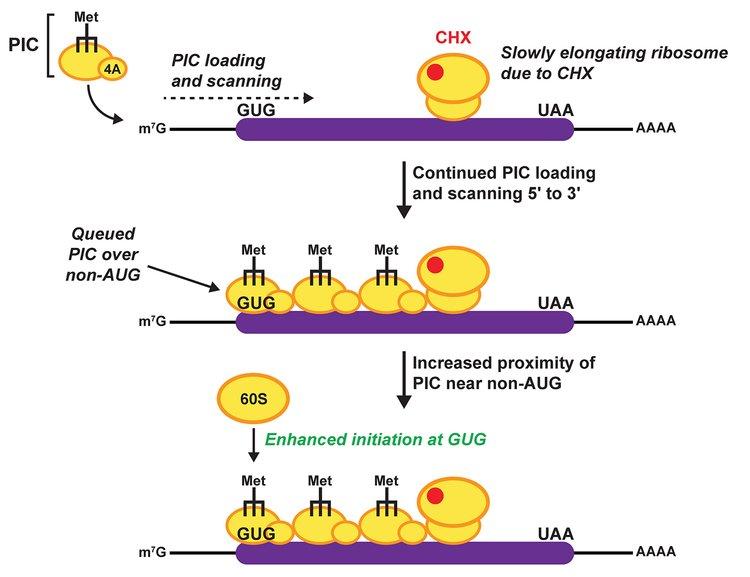ReAberrant translation initiation at non-AUG start codons is associated with cancer and neurodegenerative diseases. Therefore, identifying how non-AUG translation is regulated differently from canonical translation may reveal new therapeutic opportunities. We showed that non-AUG translation is strikingly resistant to multiple protein synthesis inhibitors, including cycloheximide. We find that these inhibitors slow elongating ribosomes, thereby inducing a queue of pre-initiation complexes that can become positioned over and initiate from an otherwise poorly recognized start codon (Figure 3). This work has important implications for how translation of medically important genes occurs (e.g. RAN translation in neurodegenerative diseases) and how to pharmacologically modulate these events. Going forward, it will be highly interesting to develop strategies that block ribosome queues, in part by revealing the proteins that control their formation and dynamics.

Key Publications
-
Kearse, M.G., Goldman, D.H., Choi, J., Nwaezeapu, C., Liang, D., Green, K.M., Goldstrohm, A.C., Todd, P.K., Green, R., and Wilusz, J.E. (2019) Ribosome queuing enables non-AUG translation to be resistant to multiple protein synthesis inhibitors. Genes Dev. 33: 871-885.
-
Kearse, M.G. and Wilusz, J.E. (2017) Non-AUG translation: a new start for protein synthesis in eukaryotes. Genes Dev. 31: 1717-1731.








